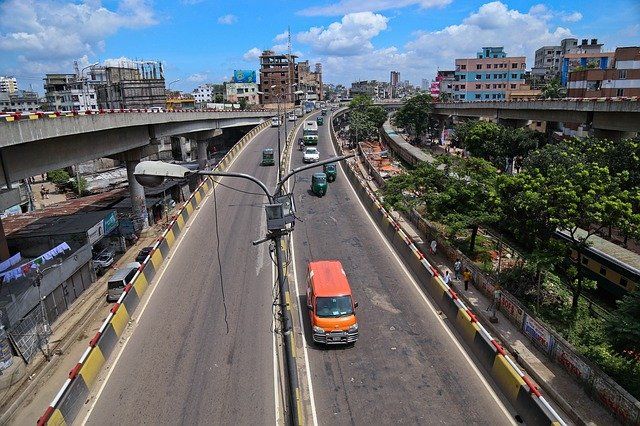Some days ago, I returned from a three-week visit to Bangladesh; my first time back for five years. There have been some dramatic changes. The population in Dhaka has increased to 10 million and is due to rise further to mega-city levels early next century. Even village roads seemed crowded with people. Paradoxically, prosperity is also increasing – buildings are going up everywhere; standards are improving; most people are working, earning at least a survival wage. Garment industries may offer pitifully low wages by Western standards, but they are economic salvation to thousands of families. Poverty remains the lot of the vast majority but most are off the ‘bottom rung’. Meanwhile national growth has strained the infrastructure to its limits: traffic jams, pollution, water and electricity shortage, all threaten impending crises, which are staved off only by short-term measures.

Yet, in other ways, Bangladesh remains the same – friendliness, hospitality, and family cohesion continue to be national characteristics; government is chaotic; the occasional one-day general strike still brings variety to the routine!
Years of opportunity
Bangladesh became an independent country in 1971, and the following twenty years, during which I had the privilege of being resident there, was a period of remarkable freedom for Christian work. Missions and missionaries were still accepted by the government. The existing church at that time, though very small, saw steady growth. At the same time, a movement began amongst the Muslim majority that saw a significant number come to faith in Christ. Most of these were able to continue in their home village or town situations, under varying degrees of social pressure. However there was little opportunity for them to meet together regularly.

In the early 1990s, the government began to restrict the activity of foreign workers, and to insist that all Christian groups make development work their prime objective. Thus today almost all foreign Christian workers in Bangladesh are ‘tent-makers’, that is, they serve God through their secular occupation. How has that transition progressed? My assessment is that initially the move into development work by foreign and national Christian workers caused a severe slowing-down in the pace of church growth. However, now that new structures are being worked out, that pace is again increasing. It may not reach former levels, but it should be more solid and steady. For one thing the mixed motivation, caused by the presence of foreign money and ‘rich Westerners’, has been reduced. At the same time national believers are themselves beginning the process of church formation and organization. This was not possible previously.
Set-backs and complications are always there, and it is a sad thing that there are always new Christian organizations or denominations who find that the easiest way to start their ‘new church’ is to entice people by offering a few jobs and relief aid. This may be done from the best of motives, but the result is often the dividing of an existing Christian group that has taken years to build.

An open door
A wide-open door exists in Bangladesh for anyone with professional skills who wishes to go there. Teaching English, or teaching science subjects in English, were two of the new opportunities I encountered. A Christian primary school has at present four ‘visa slots’ lying vacant. As yet there are few ‘tent-makers’ in Bangladesh outside of the development sphere. Given the difficult living conditions in Bangladesh (particularly from May to September, unless you have air-conditioning) that is not surprising; but, believe me, once you get there, Bangladesh grows on you!
Bangladesh is renowned for its fertile soil. Anything planted grows quickly. Survival though is difficult. Sun, drought, flood, weeds, thorns and enemies choke the new plant. Believers in Bangladesh are going through all of that. I returned from Bangladesh believing that the church will both survive and grow – and pray that one day it will fill the land!







